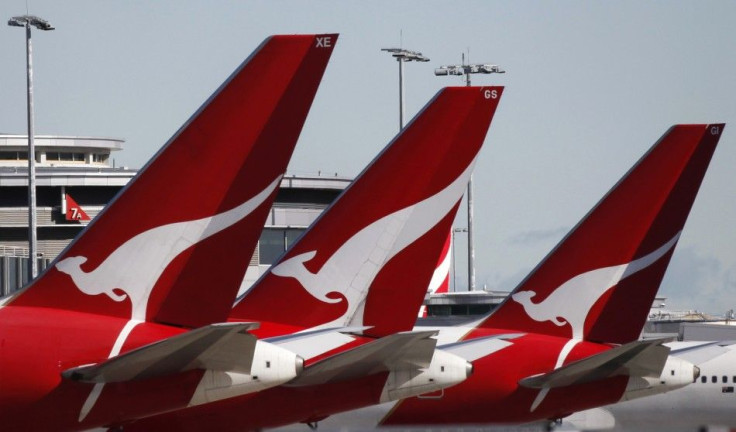Qantas Airlines Braces for Huge Strike on Plan to Cut 1,000 Jobs, Shift Operations to Asia

While Verizon is facing a strike by its workers in the U.S., another huge labor dispute is brewing thousands of miles away Down Under.
Unions representing Qantas Airlines employees in Australia are threatening to stage a massive strike in response to company plans to cut 1,000 jobs and move the center of its operations to Asia.
The planned layoffs would reportedly include management, pilots, cabin crew and engineers. The company has a total of 35,000 employees.
Over the next five years, Qantas’ seeks to establish two new Asia-based airlines to save its international flying segment from financial collapse.
Alan Joyce, the airline's chief executive, warned that international flying “is a steadily fading business, suffering big financial losses and a substantial decline in market share.”
According to Joyce, less than 20 percent of Australian travelers use Qantas to fly overseas, rendering routes to Europe and Asia unprofitable. The company’s share of the Asian market has plunged to 14 percent.
As part of the overhaul, Qantas will also eliminate ''unprofitable” flights from Hong Kong and Bangkok to London. Qantas has also cut out flights to Buenos Aires, Argentina, but will begin new services to Santiago, Chile.
The as-of-yet unnamed new pan-Asian airline will use 11 Airbus A320s, and will not carry either the ‘Qantas’ brand name or that of Jetstar, its low-cost carrier.
Qantas would own 49 percent of the Asian carrier, which would probably be based in Malaysia, Singapore or China. (It is not clear who would be the majority stockholder).
The plan has been assailed not only by Qantas’ heavily unionized workforce, but also by Australia’s Transport Minister, Anthony Albanese, who warned that Joyce’s plan would breach the Qantas Sale Act.
Terms of that Act requires that Qantas must keep a Australian head office, have Australians as its chairman and two-thirds of its board; and restrict foreign ownership to 49 percent.
''If there were any breach of the Qantas Sale Act the government would take action,'' Alabanese said. ''It is certainly my understanding that that is not the case. We'll certainly examine these changes closely.''
Unions, which are already outraged by the airline outsourcing some jobs to Asia, are threatening legal action against Qantas.
Barry Jackson, president of the Australian and International Pilots Association (AIPA), said the Qantas Sale Act was designed to prevent a ''CEO like Alan Joyce from doing something like this. We will be doing everything we can to stop this destructive strategy for Qantas's future.”
Jackson added: "[This] is exactly what Qantas pilots have been warning of for months: a shift of Australian Qantas operations into Asia to start employing people working to Asian conditions and standards. Until we get an assurance from Alan Joyce that future Qantas flights will be operated by Qantas pilots -- instead of outsourced and offshored alternatives -- we will be doing everything we can to stop this destructive strategy for Qantas’s future."
Another AIPA spokesman said: "We aren’t announcing any specific changes to our industrial action plan today, [but] all options, including strike action, remain open and we will be considering them.”
Steve Purvinas, the federal secretary of the Australian Licensed Aircraft Engineers Association union, told reporters: ''We're assessing the options but it's almost inevitable there'll be some industrial action next week.”
Senator Nick Xenophon said he will introduce bill into the Senate today to prevent the use of “cheap” foreign crew on Australian aircraft.
Joyce himself as said he is hoping to avoid any strike action.
© Copyright IBTimes 2024. All rights reserved.











